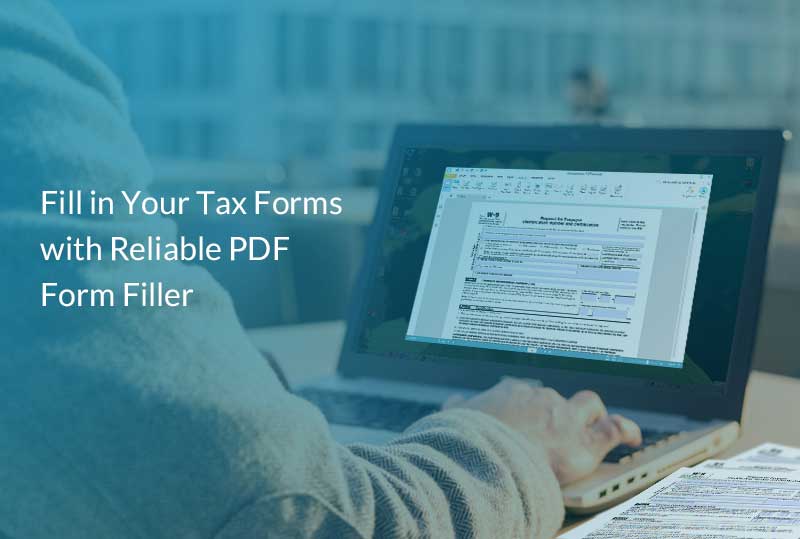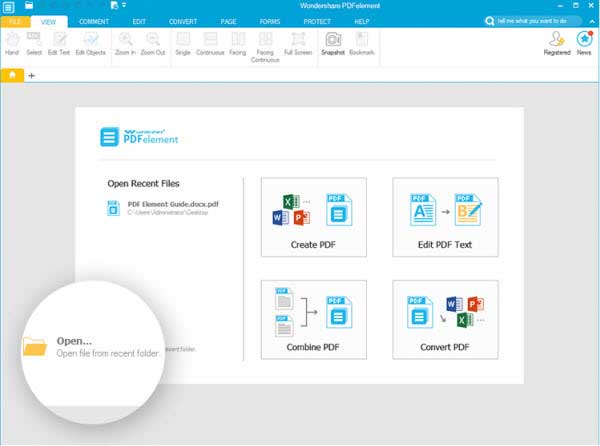PDFelement - Edit, Annotate, Fill and Sign PDF Documents

The IRS Form 720 is a document of the Internal Revenue Service used to report your liability and pay the excise taxes listed on them. It must be filed by anyone liable for or responsible for collecting any of the federal excise taxes listed on the Form 720 which must be filed for each quarter of the calendar year to the Internal Revenue Service.
Filling PDF forms manually could be tasking and that is why using software programs to fill PDF forms becomes ideal and interesting. For serious documents like the IRS forms, it is recommended that you use Wondershare PDFelement to fill out the IRS Form 720 as it is the best form filler for this purpose.

What you need to do is to open the IRS Form 720 on the PDFelement and use the program to fill out the form. It is easy to use and simple. You can check boxes, select radio buttons, type text and sign your signatures using Wondershare PDFelement.
Besides, Wondershare PDFelement also gives you the opportunity to edit, merge, convert PDF text and images and so many other PDF tasks. PDFelement can be operated among different platforms as Windows, Mac and iOS
Step 1: Type your name, address, and the quarter ending date (month and year). However, if your address has changed, you will have to check the address change box above Form 720, part I. Enter your correct employment identification number but note that if you are just a onetime filer, you may not need an employer identification number. Type in your city, state, country and zip code. If you are not filing for address change, check the final return box.

Step 2: Complete Part I. This part consist of many required tax information like the environmental, communication and air transportation, fuel, retail, ship passenger, other excise, foreign insurance and manufacturers taxes. You are to figure out the environmental taxes on the oil spill liability, ozone depleting chemical etc. Note that the tax rates for these are shown on Form 6627and you are to attach the form 6627to the Form 720. For others, determine the taxes and enter the amount for each tax corresponding to the IRS No in all tax information in part I. On the completion of part I, add all the amounts in part I to get the total.
Step 3: Fill out Part II. See instructions for the Patient Centered Outcomes Research Fee. Enter the average number of lives covered under the specified and applicable health insurance policies. Enter the tax amount applicable to each of the columns on this part. For IRS No 64, 125, 51 and 117, enter the number of gallon used. Add the entire amount in part II and write in total column under the individual tax amounts.
Step 4: Complete Part III. You have to do some little calculations here. At No 3, add part I line 1and part II, line II. Also at No 8 and 9, add lines 5 and 6 and 4 and 8 respectively. Check if there is a due balance or an overpayment in No 10 and 11 respectively. You have the option of applying it to your next return or getting it refunded to you by checking any of the “Applied to your next return” or “Refunded to you”. If you want another person to discuss the return with the IRS, then on the third party designee column, write the Designee name, phone number and the personal identification number. Sign your signature, enter the date and title. Type your name below the signature and your telephone number.
Step 5:Fill the Schedule A section- Excise Tax Liability. However, it is important to note that Schedule A must only be completed if you have a liability of any tax in part I of the Form 720. It consists of the regular method taxes and the alternative method taxes with specified periods. See further instructions and complete it as instructed.
Step 6:Schedule T is the two party exchange information reporting. For each of the fuel type described, enter the number of gallons.
Step 7:Schedule C is the claims and complete it if you are reporting liability in part I or Part II of the Form 720.You are expected to attach a statement that explains each claim as required. Ensure you include your name and EIN on the statement. Make claims from No 1 to i6 of Schedule C as required. Write the type of use and gallons where specified. For No 15 f,g and h, enter the number of tires instead of amount of claim. Add lines 1 to 15 and enter the result on column 15 as the total claims.
Still get confused or have more suggestions? Leave your thoughts to Community Center and we will reply within 24 hours.